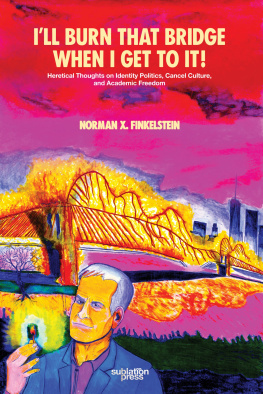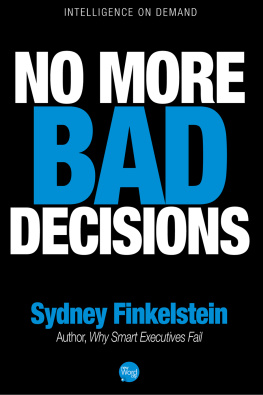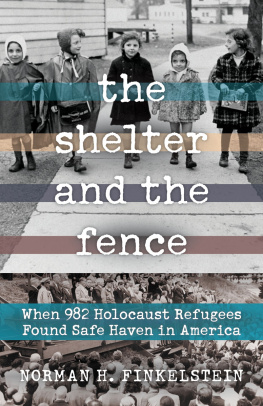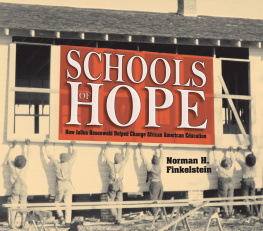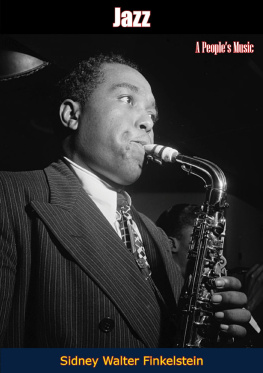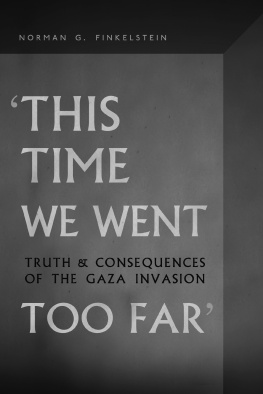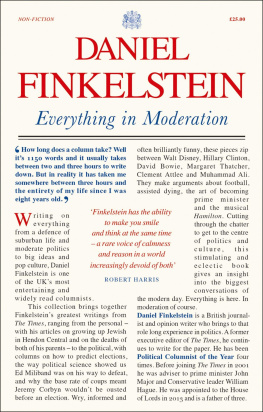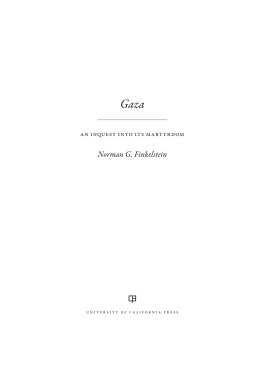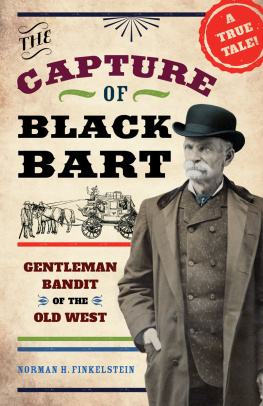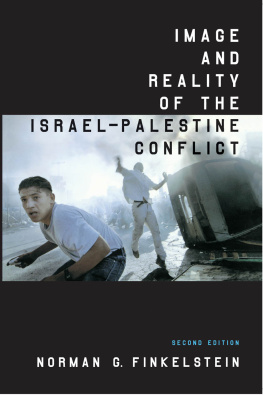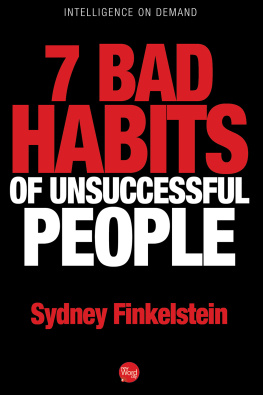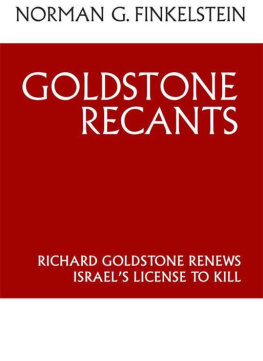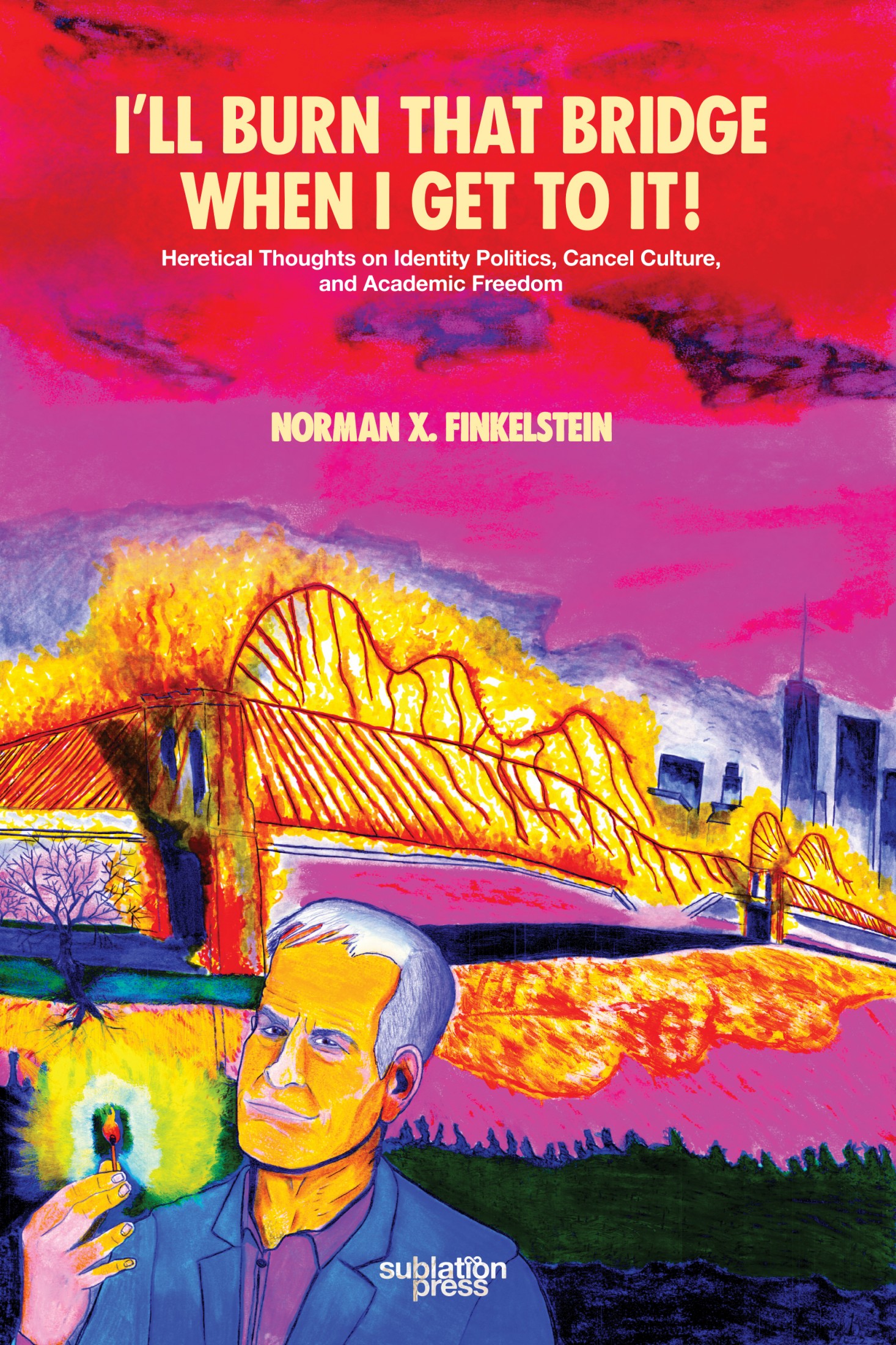Ill Burn That Bridge When I Get to It!
First Published by Sublation Media 2023
Copyright 2023 Norman Finkelstein
All Rights Reserved
Commissioned and Edited by Douglas Lain
Copy Editor Konrad Jandavs
A Sublation Press Book
Published by Sublation Media LLC
Distributed by Itasca Books
www.sublationmedia.com
Print ISBN: 979-8-9867884-2-5
eBook ISBN: 979-8-9867884-3-2
Printed in the United States of America
To
Rudolph Baldeo
Nate Gauthier
Talal Hangari
Deborah Maccoby (general editor)
Jamie Stern-Weiner
Jonas Vognsen
My partners in crime
I feel a real and solid pleasure when anybody points out a fallacy in any of my views, because I care much less about my opinions than about their being true.
Bertrand Russell
Contents
PART I:IDENTITY POLITICS AND CANCEL CULTURE
PART II: Academic Freedom
Foreword
The subject of this book is the current political moment in which identity politics, cancel culture, and academic freedom loom so large. The book itself originated in A Letter on Justice and Open Debate that Harpers published in 2020. The letter, signed by prominent public intellectuals across the political spectrum, decried the excesses of cancel culture. In the ensuing controversy, my name cropped up, not, however, as a victim of cancel culture but, it was said, of corporate culture. My publisher at the time proposed that I join the debate with a short book. He anticipated, it seems, that I would decry the hypocrisy of the decriers of cancel culture, many of whom, it might fairly be supposed, reacted with indifference (if not glee) to my own cancellation. Hypocrisy was rife, for sure. But the irrefragable fact remains that woke politics are intellectually vacuous and politically pernicious. I endeavor to demonstrate this in Part I by parsing the ur-texts of woke politics, and then by dispelling the dense mist that shrouds that ultimate woke product: the Obama cult. In Part II, I critically assess whats become an article of faith in woke culture: that in the classroom a professor should teach only his own and not contending viewpoints on a controverted question; that he shouldnt strive for balance. The last chapter of the book situates my own cancellation in broader perspective. It would be miraculous were my ego so invincible that I didnt occasionally wonder whether my alleged incivility was valid grounds for denying me tenure and ultimately banishing me from academia. I therefore decided to probe, with the maximum judiciousness humanly possible, this question. If this book is laced with vitriol, thats because so much of woke culture deserves contempt. If nonetheless a large amount of space is devoted to dissecting this nonsense, thats because its not immediately obvious why its nonsense. Where, on the contrary, a historical or contemporary figure is deserving of reverence, it is duly recorded, and where an argument contains genuine content, it is treated with the measure of seriousness it warrants. On a separate matter, to maintain the smooth flow of the text, I have loaded into the footnotes supplemental documentation as well as material of less interest to a general reader. Finally, a trigger warning: professional advance comment on this book has in the main been savage. A Henry Holt & Company senior vice-president said of the manuscript: Theres altogether too much of everything in the book, too many digressions, too many quotes, too many illustrations, and most important too much score settling, often personal. So instead of an argument, theres a tirade; instead of an analysis, theres an attack. In another bilious response, famed revolutionary Tariq Ali of Verso panned the book as incoherent and ineffective, and then, in a seemingly desperate plea, implored me for my own good not to throw a tantrum and be tempted by self-publishing. Its as if Franz Kafka and Max Brod in reverse: I want to publish my book; they want me to burn it for my own good. In any event, readers can decide for themselves whether the ensuing pages are devoid of argument, analysis, and coherenceor whether these rejection letters are just humdrum instances of cancel culture silencing too much truth when it touches too close to home.
New York City
September 2022
Part I
Identity Politics and Cancel Culture
What is the object of writing the history of Reconstruction? Is it to wipe out the disgrace of a people which fought to make slaves of Negroes? Is it to prove that Negroes were black angels? No, it is simply to establish the Truth, on which Right in the future may be built.
W. E. B. Du Bois
Chapter 1
Confessions of a Crusty, Crotchety, Cantankerous,
Contrarian, Communist Casualty of Cancel Culture
Are you now or have you ever been?
Whats new about cancel culture?
Not as much as it might appear; but not so little either. Cancel culture is as old as culture itself. Every society establishes boundaries of whats acceptable. If one finds, or places, oneself on the wrong side of them, one gets cancelled. The mechanisms can be subtlea polite rejection letter after submitting a controversial article to a scholarly publicationor quite brutala stint in a re-education camp or an assassination. Julien Benda, in La Trahison des Clercs ( The Treason of the Intellectuals ), posited that, if youre faithful to the values of Truth and Justice, it must inevitably come to pass that youll be ostracizedor, in the current idiom, cancelledby society: A clerk who is popular with the laymen is a traitor to his office. He gestured to Socrates and Jesus. On the night before his assassination, as if he had a premonition that the next day would be his last, King eerily delivered what turned out to be his own eulogy. It was perhaps the greatest political speech in recorded history, arguably surpassing in poignancy Pericles oration as immortalized by Thucydides. The only possible rival to King among modern orators is Frederick Douglass, the pages of whose speeches to this day throb from his spoken words. In the last year before his assassination, Kings biographers report, even his closest collaborators deserted him as they mocked his morbidity, while a Harris Poll found that King had a public dis approval rating of nearly 75 percent.
Most of my heroes and heroines growing up had fallen victim to cancel culture. In the mid-1930s, the awesomely gifted African-American Paul Robeson was, except for President Franklin Delano Roosevelt, the most famous American in the world. But after taking the wrong stand in the Cold War, Robeson was cancelled. His income plummeted, he couldnt rent a concert hall to perform, his name was whited out of sports records. I met my brother the other day, Robeson would sing, and gave him my right-a hand. / And as soon as ever my back was turned, he scandalized my name. The folksinger Pete Seeger was blacklisted on prime time until Johnny Cash and the Smothers Brothers forced higher-ups to allow him on their top-rated television programs. (Lee Hays, who performed with Seeger in The Weavers, famously quipped, If it wasnt for the honor, I would just as soon not have been blacklisted.) Dr. Annette Rubinstein, who seamlessly embodied the unity of theory and practiceeducated, cultured, but also a committed activistwas hauled before the House Un-American Activities Committee. To this day a half century later, I still remember the subject matter of each of the five lectures she delivered when I was an undergraduate (PostCultural Revolution China, Marxist Literary Criticism, the 1968 New York City Teachers Strike, leftwing Harlem Congressman Vito Marcantonio, and the New Deal Federal Theater Project). She wore her erudition lightly. A complete bibliography of the books read during the preparation of this work, she casually notes in the back pages of her two-volume study of English literature, would include several thousand titles and would therefore be of little or no value to the reader. Thats several thousand books , not tweets. Rubinstein ended up an itinerant speaker and writer in the service of leftwing causes. The upshot is, my generation grew up in the shadow of McCarthyism. Cancel culture was hardly alien to it. If the virulent strain of it had more or less passed, it still hovered in collective memory. We all knew someone who had been blacklisted, and the same fate occasionally befell still another victim. It was Angela Davis membership in the Communist Party that triggered the witch hunt against her in the 1960s.

